Julie Pilitsis
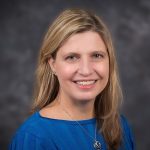
Julie G. Pilitsis, M.D., Ph.D., M.B.A., is Dean of the Charles E. Schmidt College of Medicine and Vice President for Medical Affairs at Florida Atlantic University (FAU). Being the first woman neurosurgeon to become a Dean, Dr. Pilitsis oversees the college’s innovative medical student and graduate medical education programs in partnership with a consortium of five regional hospitals. Dr. Pilitsis is also a board-certified practicing neurosurgeon who is a national expert in multidisciplinary pain, and movement disorders including Parkinson’s disease. As Vice President for Medical Affairs, Dr. Pilitsis is leading the FAU Health Network initiative. Under her stewardship, FAU Health Network is well positioned to promote premium academic healthcare to the community while addressing the challenges of shortages in medical workforce in the region. Guided by vision “Of the Community, For the Community”, Dr. Pilitsis’ compassionate care for patients permeates to the communities in the region, where she continues to tackle complex health challenges and create meaningful change. Prior to joining FAU, Dr. Pilitsis served as division chief of functional neurosurgery and chair and professor of the basic neuroscience department at Albany Medical College in New York. Dr. Pilitsis is the 2023 president of the North American Neuromodulation Society (NANS), the first woman ever to lead the organization. She is also President Elect of the American Society for Stereotactic and Functional Neurosurgery (ASSFN). She maintains an NIH sponsored research program focused on device optimization for neuromodulation and has published over 200 journal articles, 4 books, and numerous chapters.
Theodore W. Berger
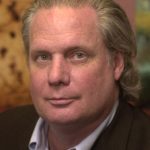
Dr. Theodore W. Berger is the David Packard Professor of Engineering, Professor of Biomedical Engineering and Neuroscience, and Director of the Center for Neural Engineering at the University of Southern California. Dr. Berger received his Ph.D. from Harvard University in 1976, and conducted postdoctoral research at the University of California, Irvine and The Salk Institute. Dr. Berger joined the Departments of Neuroscience and Psychiatry at the University of Pittsburgh in 1979. While at Pittsburgh, he received a McKnight Foundation Scholar Award, twice received an NIMH Research Scientist Development Award, and was elected a Fellow of the American Association for the Advancement of Science. Since 1992, he has been Professor of Biomedical Engineering and Neuroscience at the University of Southern California, and was appointed the David Packard Chair of Engineering in 2003. While at USC, Dr. Berger has received an NIMH Senior Scientist Award, was given the Lockheed Senior Research Award in 1997, and was elected a Fellow of the American Institute for Medical and Biological Engineering in 1998. Dr. Berger also received a Person of the Year “Impact Award” by the AARP in 2004 for his work on neural prostheses, was a National Academy of Sciences International Scientist Lecturer in 2003, and an IEEE Distinguished Lecturer in 2004-2005. Dr. Berger was elected a Senior Member of the IEEE in 2005, received a “Great Minds, Great Ideas” award from the EE Times in the same year, and in 2006 was given the USC Associates Award for Creativity in Research and Scholarship. Dr. Berger became Director of the Center for Neural Engineering in 1997, an organization which helps to unite select USC faculty with cross-disciplinary interests in neuroscience, engineering, and medicine. Dr. Berger has published over 200 journal articles and book chapters, and is the co-editor of a book published by the MIT Press on Toward Replacement Parts for the Brain: Implantable Biomimetic Electronics as Neural Prostheses. In addition, Dr. Berger will be the lead co-editor of a book soon to be published by Springer-Verlag on Brain-Computer Interfaces: An International Assessment of Research and Development Trends. The research of Dr. T.W. Berger involves the complementary use of experimental and theoretical approaches to developing biologically constrained mathematical models of mammalian neural systems. The focus of the majority of current research is the hippocampus, a neural system essential for learning and memory functions. The goal of this research is to address three general issues: (1) the relation between cellular/molecular processes, systems-level functions, and learned behavior; (2) the extent of which the functional dynamics of neural systems are altered by activity-dependent synaptic plasticity; (3) the extent to which the essential functions of a neural system can be incorporated within a hardware representation (e.g., VLSI circuitry). Experimental studies involve the use of extracellular, intracellular, and whole-cell electrophysiological recording techniques, applied in vivo using anesthetized and chronically implanted animals, and in vitro using hippocampal slice preparations. A number of neurobiological issues are being investigated, including: (1) quantifying the signal processing capabilities of hippocampal neurons and the extent to which these capabilities reflect regulation due to feedforward and feedback circuitry vs. intrinsic neuronal mechanisms, such as voltage-dependent conductances or second messenger biochemical systems; (2) the spatio-temporal distribution of activity in neural networks and its dependence on input pattern and network connectivity; (3) the cellular mechanisms underlying changes in the strength of connections among neurons, i.e., synaptic plasticity, and the influence of synaptic plasticity on signal processing characteristics of neurons and the spatio-temporal distributions of activity in networks. These and other experimental studies are used in conjunction with several different theoretical approaches to develop models of: (1) the nonlinear, input/output properties of single hippocampal neurons and circuits composed of several populations of hippocampal neurons (in collaboration with Dr. V. Marmarelis, Biomedical Engineering, USC), (2) the hierarchical relationship between synaptic and neuronal events (in collaboration with Dr. G. Chauvet, Institute for Theoretical Biology, University of Angers, France), (3) the kinetic properties of glutamatergic receptor subtypes, and (4) adaptive properties expressed by the “hippocampal-like” neural networks implemented with analog VLSI technology (in collaboration with Dr. B. Sheu, Electrical Engineering, USC).
Joe F. Bolanos
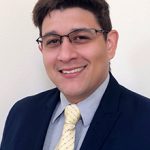
A Passion for Innovation in Healthcare Dr. Joe F. Bolanos, embodies a compelling fusion of medical expertise and technological acumen. With an unwavering interest in harnessing innovation to improve healthcare efficiency, and a commitment to improving patient access to novel diagnostics and therapies. Dr. Bolanos has carved a distinguished path throughout his career. He earned his Doctor of Medicine from Universidad Dr. José Matías Delgado in El Salvador. Early Promise and First Steps in Medicine: A lifelong fascination with technology and its potential to revolutionize healthcare propelled Dr. Bolanos towards a medical career. During his medical school tenure, his dedication was recognized through a three-year scholarship for academic excellence, solidifying the respect of his peers, professors, and patients alike. His initial foray into the world of neuroscience occurred upon completing his medical training, when he served as attending physician for orphaned individuals with neurodevelopmental disorders. Emigrating to the US and Embracing Research: Following his medical school graduation, Dr. Bolanos immigrated to the United States, where he actively participated in diverse healthcare projects. A particularly impactful undertaking involved establishing the Metro Health Station Clinic in South Central Los Angeles, aimed at alleviating the healthcare deserts plaguing the underserved community in Jefferson Park. Dr. Bolanos actively participated in addressing healthcare disparities. In this role, he played a pivotal leadership role, overseeing care logistics, patient organization, and medical area coordination. This experience ignited his research curiosity, leading him to explore novel methods for aiding both local patients and individuals who could benefit from advancements in medical technologies and pharmaceuticals. Early Research Journey and Transitioning to SBMT: Dr. Bolanos embarked on his research journey in the field of dermatology, successfully managing clinical trials for conditions ranging from tinea to diabetes to psoriasis, partnering with esteemed laboratories like Bristol-Myers Squibb, Asana, Pfizer, Leo Pharma, and Biome. He then joined the Society for Brain Mapping and Therapeutics (SBMT) as a Research Fellow. Dr. Bolanos’s commitment to leadership and research excellence is further exemplified by his contributions at the SBMT. He commenced his tenure there as a Research Fellow. His exceptional abilities were quickly recognized, leading him to assume the leadership role among the fellows and subsequently being promoted to Lead Research Fellow in just six months. Leadership During the Pandemic and Beyond: During the COVID-19 pandemic, Dr. Bolanos refused to remain idle. He assembled a team that, under the guidance of Dr. Babak Kateb, authored the impactful paper “COVID-19: A Review of a 21st Century Pandemic, from Etiology to Neuropsychiatric Implications.” This achievement earned him the coveted Student Service and Leadership Award (WBMF Awards) and a subsequent promotion to Research Scientist. Additionally, his research explored the neurological burden of these diseases, culminating in the proposal of the “Neuroscience20 (BRAIN20, SPINE20, and MENTAL20) Health Initiative: A Global Consortium Addressing the Human and Economic Burden of Brain, Spine, and Mental Disorders Through Neurotech Innovations and Policies” in collaboration with SBMT. Dr. Bolanos’s leadership talents were further recognized when he was entrusted with leading SBMT subcommittees. He spearheaded the research and writing efforts that led to the publication of “A Proposed Brain-, Spine-, and Mental-Health Screening Methodology (NEUROSCREEN) for Healthcare Systems: Position of the Society for Brain Mapping and Therapeutics.” He has also authored numerous book chapters on topics ranging from clinical medicine to neurotechnology and FDA regulations. Notably, he is slated to contribute to the upcoming Neurophotonics book under the mentorship of Dr. Babak Kateb. While at SBMT, he concurrently served as an Adjunct Clinical Professor in Urology at the University of Southern California, collaborating with Vasgene Therapeutics on research pertaining to prostate and bladder cancers. Returning to SBMT and Shaping the Future: In 2022, Dr. Bolanos returned to SBMT brimming with ideas to streamline processes. With Dr. Kateb’s support, he embarked on a comprehensive overhaul of the organization’s framework, processes, and systems. Dr. Bolanos’s dedication to the advancement of the field is further evidenced by his participation in the 7th, 9th, and 10th Neuroscience20 Initiative Summits in Saudi Arabia, Bali, Indonesia, and New Delhi, India. These contributions were recognized by the SBMT with the prestigious Global Leadership Award in 2023. A Vision for the Future: Leveraging his aptitude for streamlining processes and improving systems, Dr. Bolanos was promoted to Chief Operating Officer of SBMT in 2022. Under his leadership, the organization underwent significant improvements, including enhanced systems, streamlined processes, and a revitalized corporate image. His dedication was further acknowledged with the Golden Axon Leadership Award at the GFC Awards Gala in 2024, followed by a well-deserved promotion to the SBMT Advisory Board. Currently, at the University of California San Diego, he continues to focus on enhancing patient care, bringing unity in the field of medicine and advance healthcare technology by bringing Tech knowledge to every provider. His unique blend of medical expertise and technological foresight positions him as a driving force for positive change within the healthcare landscape. Dr. Bolanos’s impressive career trajectory exemplifies his unwavering commitment to innovation, leadership, and improving patient access to cutting-edge healthcare solutions.
Kevin Morris

In Pursuit of Healthcare Excellence, Every Step of the Way. Dr. Kevin Morris, MBBS, has consistently demonstrated a passion for pursuing excellence in academics or extra-curricular activities throughout his journey. He earned the ‘Best Student Award’ multiple times during schooling and became the first medical doctor in his family. During his medical school training in India, he developed a strong interest in research, especially neurosciences and medical oncology. He earned his Bachelor of Medicine and Bachelor of Surgery (MBBS) degree from Maharashtra University of Health Sciences, Nashik, India. From Childhood to Medical School: Coming from a family background rooted in business, he chose the difficult path of being the first person in his family to attend medical school and pursue a medical career. With hard work and dedication, he excelled throughout his medical school, not just in academics but also in extra-curricular activities. He started various clubs, including the first debate club in his school. He was among the only students to receive a scholarship and grant to conduct an off-campus project study on the effects of Acute Mountain Sickness in the Himalayan Mountain range of Leh-Ladakh. He has been awarded the best student award 6 years in a row during his school. He was among the toppers nationally in the National Physics Olympiad during high school. He has authored an extensive 10000-word essay on ‘Women Empowerment in India’ that won him an award from the Government of India. Dr. Morris used his business talents wisely, and currently, he serves as the Medical Director of Mother Vailankanni Group of Companies and Bhagya Group, LLC in Maharashtra, India. Additionally, he is the founding director of Aklun Biotech LLC, a med-tech startup focused on developing innovative therapeutic solutions for patients in countries like India. He also founded Morris Lifesciences and Technologies, supporting young researchers, scientists, doctors, and engineers in pursuing higher education. Coming to the USA and learning about SBMT: Covid-19 pandemic shakes the world Dr. Morris moved to the USA to pursue a medical residency in neurology and learned about the Society for Brain Mapping and Therapeutics (SBMT). He joined as a graduate research fellow in 2020 and showcased his team skills and leadership qualities while being the lead fellow for the Neuroscience-20 Summit in Saudi Arabia held virtually due to the COVID-19 pandemic. He started working on the landmark policy paper under the guidance of Dr. Babak Kateb and Dr. Vicky Yamamoto, exploring the neurological burden of these diseases, culminating in the proposal of the “Neuroscience20 (BRAIN20, SPINE20, and MENTAL20) Health Initiative: A Global Consortium Addressing the Human and Economic Burden of Brain, Spine, and Mental Disorders Through Neurotech Innovations and Policies,” of which he is the first author. Dr. Morris was part of the team that authored the impactful paper “COVID-19: A Review of a 21st Century Pandemic, from Etiology to Neuropsychiatric Implications”. These papers were published in the Journal of Alzheimer’s Disease (JAD). All these leadership and team skills earned him the Student Service and Leadership Award in 2021, awarded by the World Brain Mapping Foundation (WBMF). His exceptional abilities did not go unnoticed by senior leadership, and he got promoted to the Research Scientist position, where he mentored the fellows and interns. During the early days of the COVID-19 pandemic, he was offered a position as an Adjunct Clinical Professor in Urology (Voluntary) at the University of Southern California (USC), collaborating with Vasgene Therapeutics on research on prostate and bladder cancers. Dr. Morris initiated the SBMT Student Chapter at Los Angeles City College during his student days there. In 2021, due to the ongoing crisis caused due to COVID-19, he returned to India to help with relief efforts. Life at SBMT Dr. Morris’ leadership in various subcommittees has been instrumental in helping to put together the Annual World Congress of SBMT. Some of the subcommittees he has been part of are Neuro-Psychiatry, AD, Neurotech, Neuroscience-20, Neurosurgery, Spine Surgery, and Pain Management, among others. He has been instrumental in researching and writing the publication “A Proposed Brain-, Spine-, and Mental-Health Screening Methodology (NEUROSCREEN) for Healthcare Systems: Position of the Society for Brain Mapping and Therapeutics.” He has also authored numerous book chapters on topics ranging from clinical medicine to neurotechnology and FDA regulations. He is an assistant editor of the 2nd Edition of the Textbook of Nanoneuroscience and Nanoneurosurgery published by Springer Nature. He is currently working to contribute to the upcoming Neurophotonics and Brain Mapping textbook under the mentorship of Dr. Babak Kateb. Returning to SBMT with Focus on Neuroscience Advancement: In November 2022, Dr. Morris returned to SBMT to continue helping shape the textbook and the Annual World Congress. His active participation and dedication to the field of neuroscience are reflected by his leadership in his organizational skills for the 10th Neuroscience-20 Summit held in India in September 2023. He was conferred the N20 Global Leadership Award for his exceptional leadership skills. Throughout 2023, he helped in the organization of the 20th Annual World Congress, peer-reviewing the abstracts and posters, finishing the textbook of Nanoneuroscience and Nanoneurosurgery 2nd edition, helped organize the 21st Annual World Congress, including managing the Hands-on Bioskills cadaver labs and being a peer-reviewer for the abstracts and posters. All these efforts led him to receive the 2024 Golden Axon Leadership Award at the hands of the Board of Directors of WBMF at the GFC Awards Gala 2024 at the Millenium Biltmore Hotel in Los Angeles. A Vision for the Future: Dr. Morris was promoted to Academic Affairs Director (Voluntary) in 2024. In this capacity, under the guidance of Dr. Kateb, he has envisioned helping transform and increase the publishing output and poster hall of the SBMT Annual Congress. He wishes to help all fellows and student interns get published and recognized for their efforts, as SBMT gave him the same chance in the past. His inimitable intermingling of medical proficiency and technological prudence makes him a powerful force for constructive change in healthcare. Outside his professional endeavors, Dr. Morris is an
Navid Sadoughi
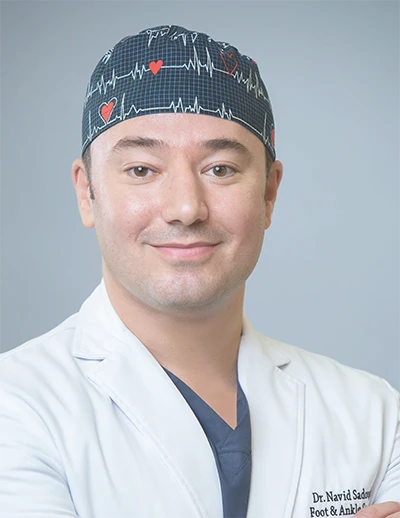
ABOUT DR. NAVID SADOUGHI Dr. Navid Sadoughi, DPM holds two board certifications in foot surgery and reconstructive rearfoot and ankle surgery by the prestigious American Board of Foot & Ankle Surgery. Dr.Sadoughi believes in exhausting all conservative measures prior to adopting a surgical approach. Dr.Sadoughi employs a series of advanced modalities in the office. Dr.Sadoughi serves as chief of podiatry at White Oak Medical Center. He is a wound care panelist at its Advanced Wound Care Center. He treats complicated diabetic limbs with complex pathologies of the lower leg. He employs a series of advances treatments which include but not limited to allografts, surgical flaps coupled with external fixators to treat complex limb salvage cases. Dr.Sadoughi utilizes Minimally Invasive Surgery and techniques to minimize scarring and reduce post-operative pain and recovery time. He offers Minimally Invasive Bunion Correction “scarless” to his patients. This significantly reduces recovery time and scarring. Dr.Sadoughi Performs Ankle arthroscopy to treat painful ankle joints. He performs ATFL/Lateral ankle ligament instability surgeries to help patients with ankle pain and instability to return to their baseline activity. Dr.Sadoughi treats a wide range of foot and ankle problems, including fractures, sprains, ligament tears, bunions, hammertoes, plantar fasciitis, tendonitis, arthritis, and other conditions. Dr.Sadoughi treats ankle and foot fractures despite the severity of injury Dr.Sadoughi offers Total Ankle Replacement (TAR) to qualified patients. This allows his patients to retain the ankle range of motion instead of fusion. Dr.Sadoughi believes in advanced surgical techniques and technologies to provide his patients with the best results possible.
Meet the SBMT President
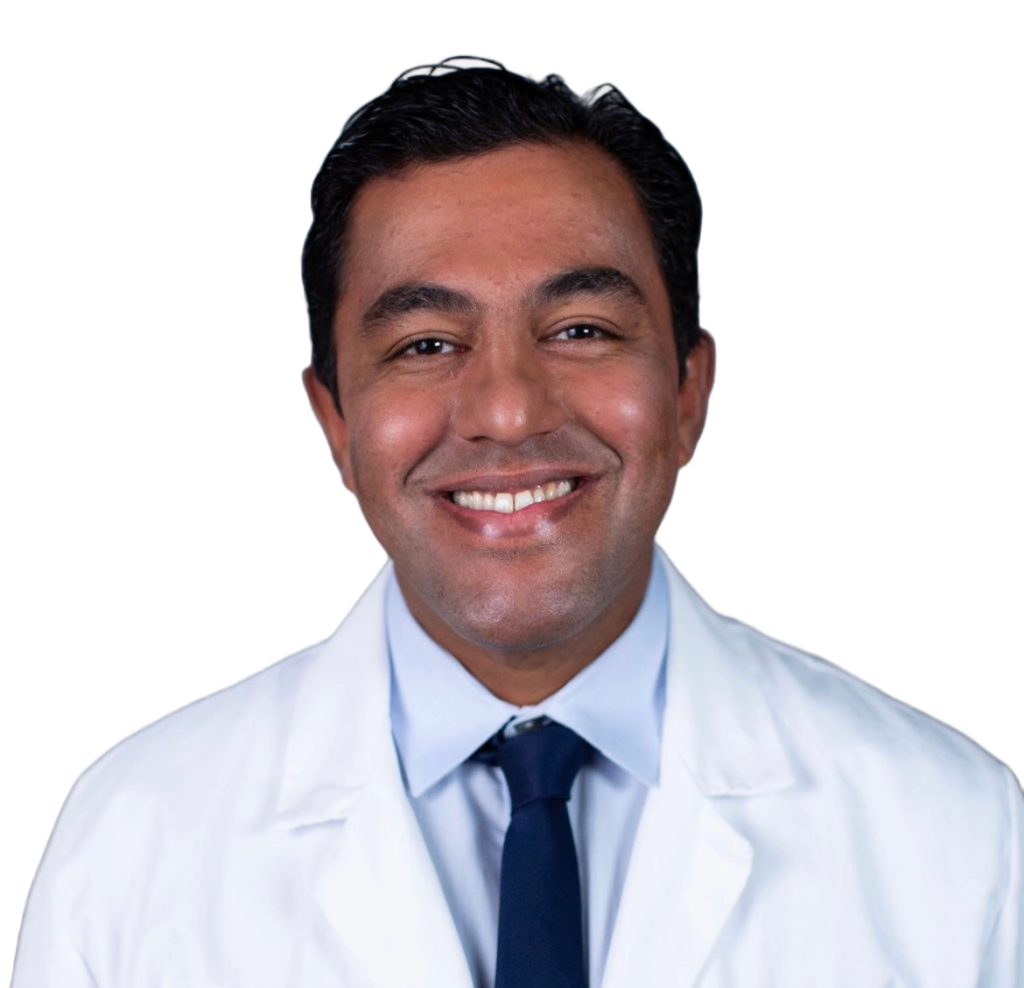
SBMT President’s Message It is an incredible honor to serve as the President of the Society for Brain Mapping and Therapeutics (SBMT) Annual Meeting in Los Angeles from February 28- March 2, 2025. SBMT is a truly unique organization where scientists from various backgrounds converge on the unified goal of advancing the neurosciences. The theme of this year’s meeting will focus on the convergence of human consciousness and neuroscientific innovation. The new era of brain-computer interface, artificial intelligence, nanotechnology, and robotics will completely change the landscape of healthcare. The incredible stories of human perseverance, deep, thoughtful experiments and revolutionary therapies ultimately come from a source that is deep and personal to everyone. It is that passion and drive that forces us to unlock our real potential for healing humanity. The discoveries yet to unfold lie in a much deeper realm of consciousness, and we hope you will tap into that curiosity at our meeting, where the cutting edge of neuro innovation thrives. Our collective consciousness promotes diversity, curiosity, and humility to engage with the next great discovery to help humanity. Our mission at SBMT is to travel the road less traveled and encourage cross-pollination between science, technology and human consciousness. That realm of consciousness is where an idea to transform humanity exists, and I hope you will bring this excitement to our meeting. The 2025 SBMT meeting will have incredible speakers meant to challenge what you know, help you embrace the unknown, and leave you energized about the future. By unlocking your imagination and curiosity, we hope to leave you as better scientists and deep thinkers for advancing the greater good of helping our patients. I truly look forward to seeing you. Warmest WishesAbilash Haridas, MD, FAANS, FCNS, FABPNSNeurosurgeon22nd President SBMTLos Angeles, California
Deborah Zelinsky
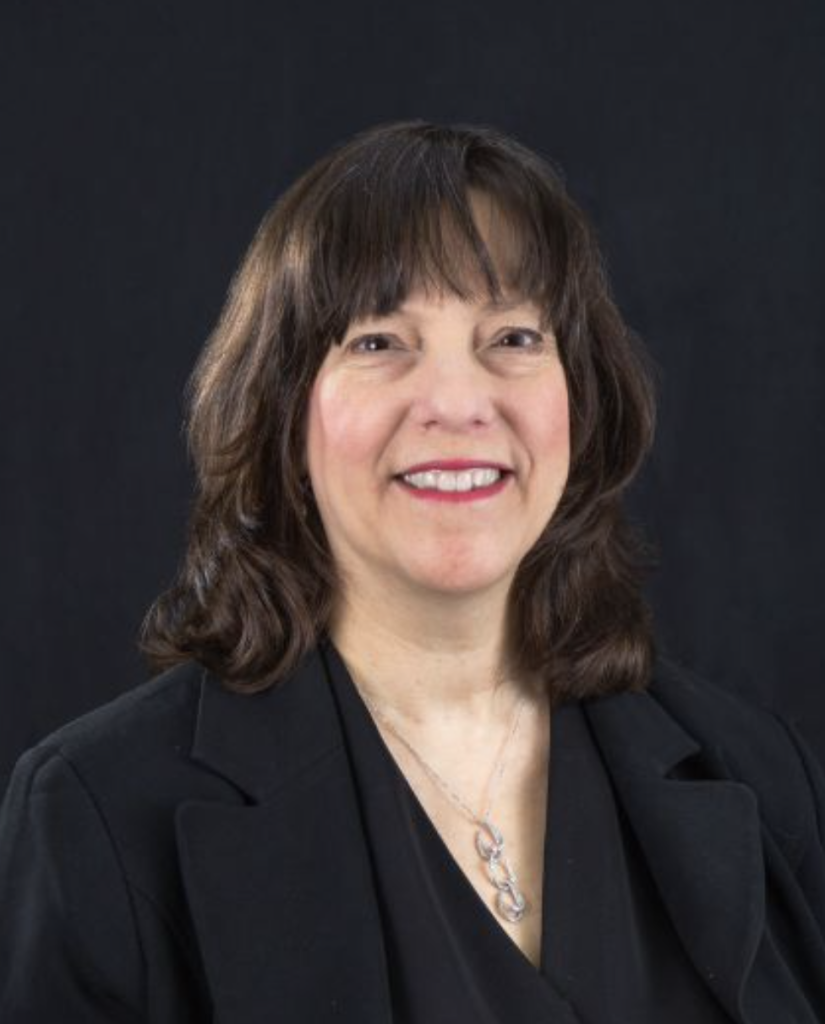
Her global reputation is due, in part, to her discovery of the use of eyeglasses to alter sound location and subsequent development of the Z-Bell Test℠. The patented test allows Dr. Zelinsky and her team to prescribe lenses and use other optometric interventions that balance processing of central and peripheral eyesight, while synchronizing the integration between auditory and retinal sensory systems. The Mind-Eye Institute was created with the objective to make new science discoveries pertaining to eyes more accessible to patients both domestically and globally. Dr. Zelinsky’s vision is to train other eyecare professionals on enhancement of retinal processing using her patented methods, with a short-term goal to have accredited doctors practicing in most major population centers globally. The 20/20 eye testing standard is over 150 years old and does not consider the peripheral processing or auditory integration both of which are critical. Dr. Zelinsky is pioneering a campaign to “Leave 20/20 in the 20th Century” and shift into a more updated assessment protocol including moving targets and overall awareness of surroundings. Using brain mapping of the retina (which is comprised of brain tissue) the optometric profession can perform brain, rather than eye, examinations. Patients needing this updated testing include those who have been diagnosed with a brain that isn’t functioning at its full potential. This includes a wide range of issues, including genetic mutations, autism, attention problems such as ADD and ADHD, dyslexia, learning problems, concussions, and stroke among others. In addition to her work with the Mind-Eye Institute, Dr. Zelinsky is a fellow in both the College of Optometrists in Vision Development and the Neuro-Optometric Rehabilitation Association. She is a board member of the Society for Brain Mapping and a community leader for the Society of Neuroscience. More on Deborah Zelinsky: Here
Vicky Yamamoto
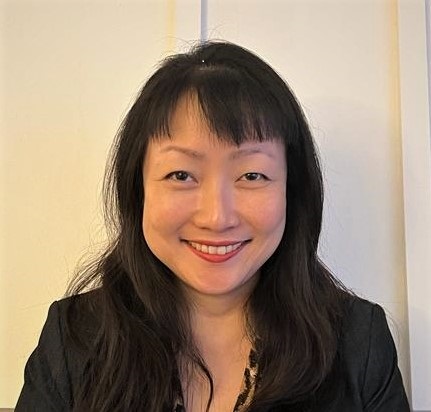
Dr. Yamamoto’s pioneering work on mammalian Ryk was conducted at the laboratory of Professor David Baltimore, a Nobel laureate-1975, at California Institute of Technology. In this project, Drs. Baltimore, Yamamoto and the team have demonstrated that a Wnt co-receptor is required for stimulation of neurite outgrowth. The significant finding was published in a prestigious journal, Cell (Cell Press). This work opened new possibilities for scientists to investigate the role of Wnt signaling in cellular growth and differentiation in the central nervous system. Dr. Yamamoto received a prestigious fellowship from California Institute for Regenerative Medicine (CIRM) to investigate the role of cleavage of Wnt co-receptor Ryk in regulating neuronal differentiation during cortical neurogenesis. She published her results in Developmental Cell (Cell Press), which identified a key mechanism that regulates the development of stem cells into neurons. Dr. Yamamoto’s current research at Keck School of Medicine of USC in the Department of Head and Neck Surgery focused on a) The effect of Wnt small molecule inhibitor in enhancing chemo-radiation sensitivity of cancer cells. b) Investigating the roles of cancer stem cells in head and neck cancer progression and metastasis. c) IL-6/STAT3 signaling as a therapeutic target and for early diagnosis. She has been a recipient of many prestigious awards including: an industry award, the young investigator award from Society for Brain Mapping & Therapeutics (SBMT), a pre-doctoral fellowship from The Edwin Everest Foundation, CIRM pre-doctoral fellowship from California Institute for Regenerative Medicine, as well as numerous awards from Mount St. Mary’s College including President’s Medal, Sister Rebecca Doan’s award, community service award, and the honors certificate. She graduated with Magna Cum Laude from Mount St. Mary’s College with a BS in biological sciences and a BA in chemistry. She received a PhD in biochemistry and molecular biology from Keck School of Medicine of USC. Dr. Yamamoto has been a founding member of the board of the Society for Brain Mapping and Therapeutics (SBMT). She has served on many committees including publication committee as a member of the editorial board and co-chaired the industry committee of SBMT where she provided a liaison with near 3,000 industry partners of the society. Dr. Yamamoto is also an active board member of the Brain Mapping Foundation.
Jason Cormier

Dr. Cormier is a native of South Louisiana, where he graduated from St Thomas More High School in Lafayette, La. A former LSU basketball player and graduate of Louisiana State University in Baton Rouge, he went on to receive his medical degree from Louisiana State University in New Orleans, Louisiana. He became eligible for the Alpha Omega Alpha Medical Honor society and served on several committees, including the LSU School of Medicine Admissions Committee, the LSU School of Medicine Dean’s Selection Committee and was the medical school’s representative to the Louisiana Board of Supervisors in 2004. He received a number of scholarships and was a member of many different societies. Dr. Cormier also dedicated his time on a monthly basis to the Student Run Homeless clinic in New Orleans, La. Dr. Cormier joined Acadiana Neurosurgery and its founder Dr. Alan Appley after his internship in general surgery and neurosurgery at Duke University Medical Center in Durham, NC and the completion of his training at the University of Alabama at Birmingham in Birmingham AL. During his training, he gained extensive experience in complex spinal surgery under the direction of Dr. Mark N. Hadley and associates. He also received special training in minimally invasive spinal surgery as well as open and endoscopic brain surgery. He has published articles in national journals involving the fields of Adult and Pediatric spine and epilepsy. In 2005 he served on the Council of State Neurological Society in 2005 as a representative of Alabama to the American Association of Neurological Surgeons. He received the Resident Leadership Award from the Division of Neurological Surgery at the University of Alabama at Birmingham for “his dedication to promoting the art and science of Neurosurgery, demonstrating outstanding clinical skills, offering leadership by word and example and providing mentorship to junior residents.” Dr. Cormier maintains his interests to train Neurosurgeons of tomorrow and will be teaching both medical students and residents many innovative neurosurgical techniques including endoscopic pituitary and image-guided surgery, and minimally invasive complex spinal surgery. Dr. Cormier was named as one of “America’s Top Surgeons,†in the field of Neurosurgery, by the Consumers Research Council of America, Guide to America’s top surgeons. Dr. Cormier is a member of the American Association of Neurological Surgeons and the Congress of Neurological Surgeons and is board eligible in neurological surgery. In his own words, “It’s great to be back home. I have been truly blessed. Dr. Cormier is one of Lafayette Surgical Specialty Hospital’s Physician Owners.
Robert Hariri

Dr. Hariri pioneered the use of stem cells to treat a range of life-threatening human diseases and continues today to make transformative contributions in the fields of immuno-oncology and cell therapeutics along with tissue engineering and functional regeneration. He is widely acknowledged for his discovery of pluripotent stem cells derived from the human placenta, and as a member of the team that discovered the physiological activities of tumor necrosis factor (TNF). Dr. Hariri and his team of scientists were the first to obtain FDA approval to use its cryopreserved allogeneic, off-the-shelf Natural Killer (NK) cell therapy to treat COVID-19 infected adults. He holds over 170 issued and pending patents for discoveries including placenta-derived stem cells, which Nature recognized as one of the ten most important patent estates in the field. He has authored over 150 published chapters, articles, and abstracts. Dr. Hariri was the recipient of the Pontifical Medal for Innovation awarded by Pope Francis in 2018 for his discovery of placental stem cells and advances in immunotherapy and regenerative medicine. Dr. Hariri twice received the Thomas Alva Edison Award for invention, in 2007 and 2011, and is a recipient of the Children’s Brain Tumor Foundation’s Fred J. Epstein Lifetime Achievement Award. Dr. Hariri was recipient of the Genius of New Jersey Award in 2019 and over the years has received numerous other honors for his many contributions to the fields of biomedicine and aviation. Dr. Hariri is an Adjunct Professor of Neurosurgery and member of the Board of Overseers of the Weill Cornell Medical College and a former member of the board of visitors of the Columbia University School of Engineering and Applied Sciences, and the Science & Technology Council of the College of Physicians and Surgeons. He is a member of the X PRIZE Foundation scientific advisory board for the Archon X PRIZE for Genomics. Dr. Hariri is a trustee and vice-chair of the Liberty Science Center. In 2010 he was appointed a Commissioner of Cancer Research by New Jersey Governor Chris Christie. Dr. Hariri completed his undergraduate training at Columbia University School of Engineering and Applied Sciences and Columbia College. He received his M.D. and Ph.D. degrees from Cornell University, where he was the recipient of both the Julian R. Rachele Award and the Doctoral Dissertation Award. He was a surgical resident and fellow in neurosurgery at The New York Hospital-Cornell Medical Center and served as an Assistant Professor of Neurosurgery and Associate Research Professor of Surgery at Cornell and Co-director of the Aitken Laboratory in Neurosurgery.
